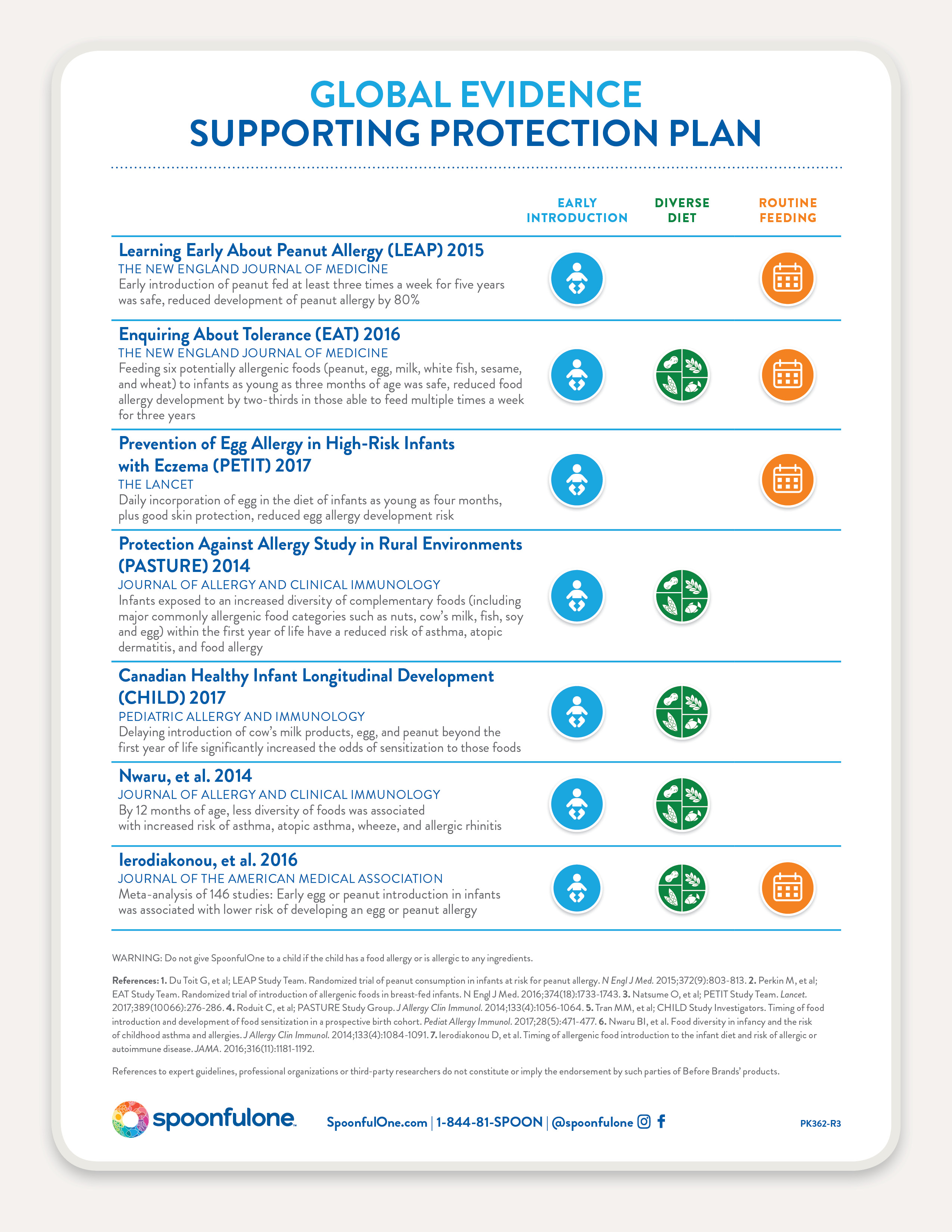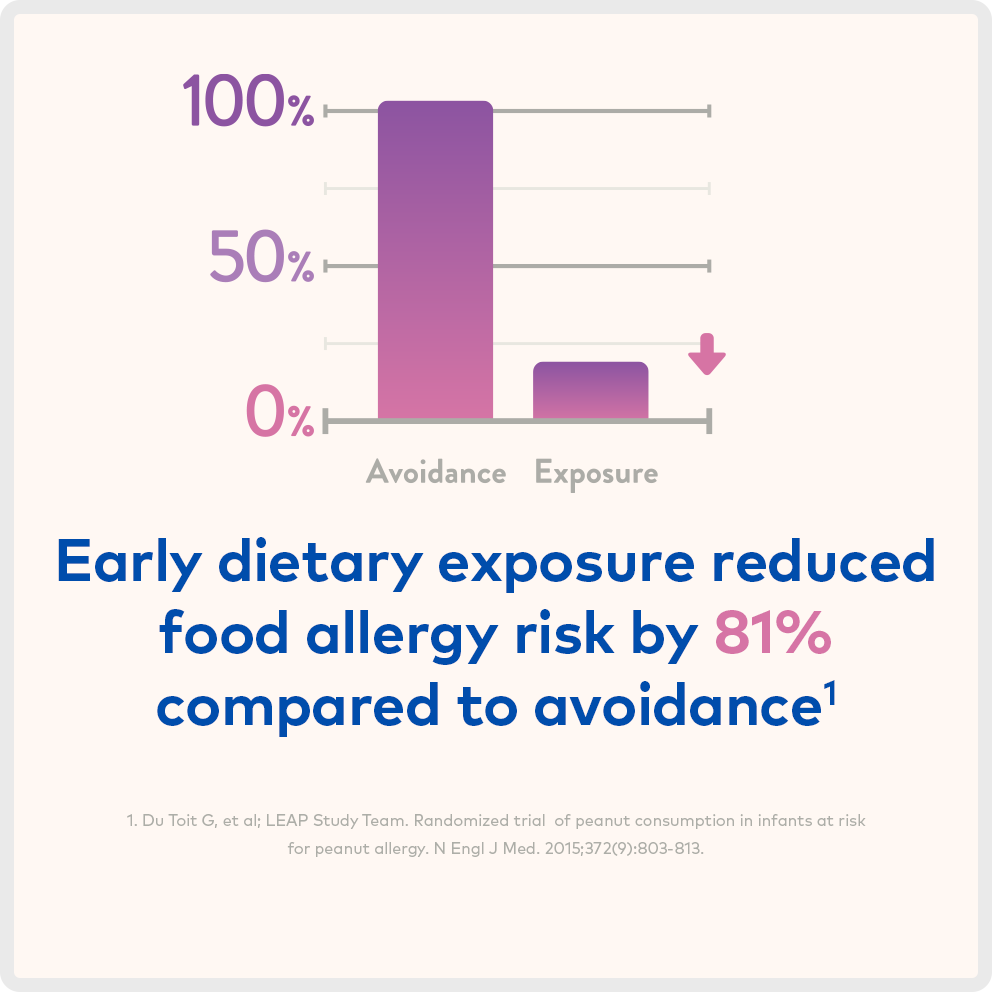Food Allergy & Anaphylaxis

Latest Research of Food Allergy Prevention
Food diversity and environmental exposures early in life have been found to contribute to less allergic disease in childhood and beyond (source). In addition to a myriad of global data on diet diversity (See Appendix A: Global Body of Evidence), two breakthrough studies have reversed how experts guide parents about the early introduction and routine feeding of potential allergens.
The LEAP study, an international clinical trial published in 2015 in The New England Journal of Medicine (NEJM) evaluated early introduction and routine inclusion of peanuts for high-risk infants beginning as young as 4 months of age. The study found that the risk of developing a peanut allergy dropped by 81 percent when parents included peanut into a baby’s diet and continued to feed peanut regularly (about 3 times weekly) for five years.

The EAT study, published in 2016, showed that feeding six potentially allergenic foods (peanut, egg, milk, whitefish, sesame, and wheat) to non-allergic, breastfed infants as young as three months of age was safe. In addition, for caregivers who were able to sustain regularly feeding all of those foods, their children had a two-thirds reduced risk of developing a food allergy. However, the EAT study also demonstrated the difficulty of consistent, long-term inclusion of diverse foods into a baby’s diet. When evaluated, only about one-third of study participants were able to adhere to the protocol of regularly feeding all of these foods over time.
Research now says early and regular dietary exposure to a food—specifically a food often associated with allergies, like peanut—may help reduce the risk of a child developing an allergy to that food. Data has been so powerful that the U.S. Food and Drug Administration (FDA) and the National Institute of Allergy and Infectious Diseases (NIAID) have formally supported the early introduction of peanut in an infant’s diet. These important government organizations recognized that giving a baby a potentially allergenic food early and routinely can help protect against the development of a food allergy.